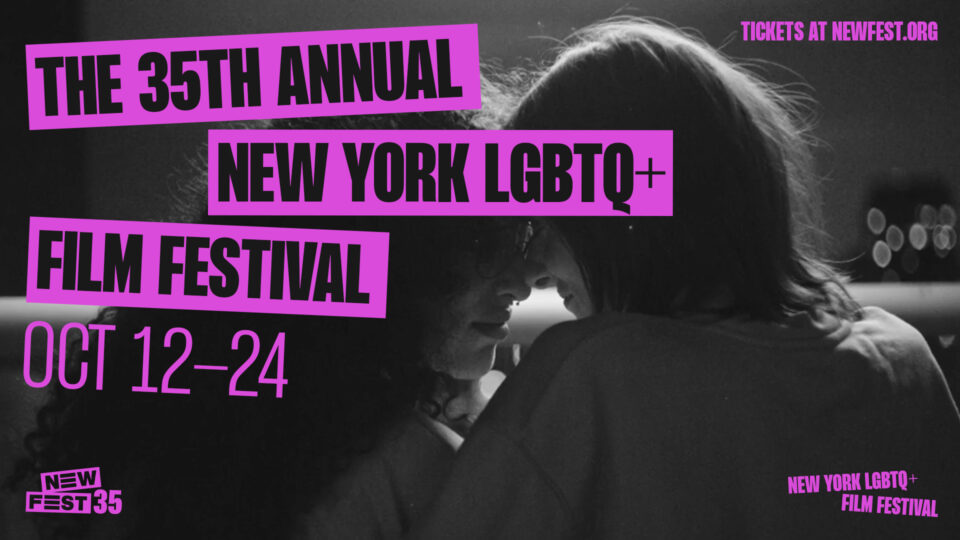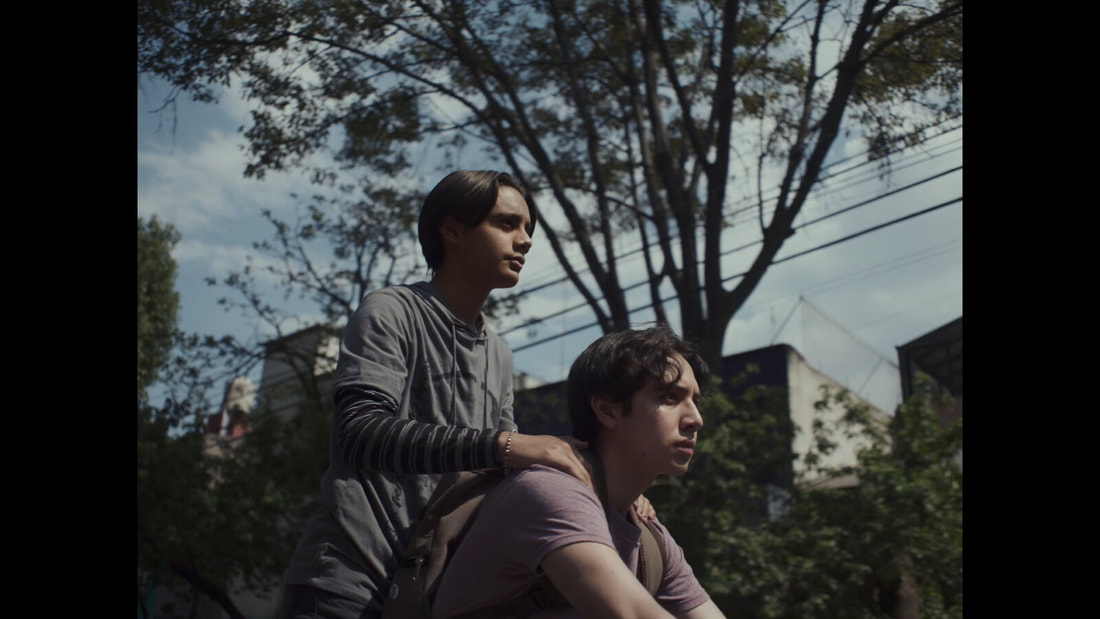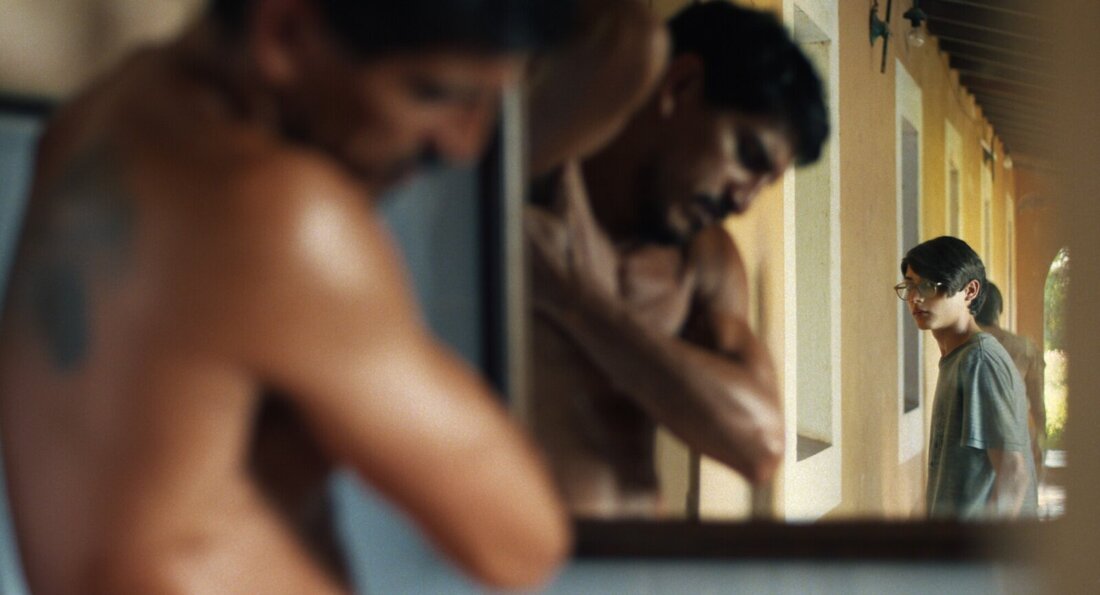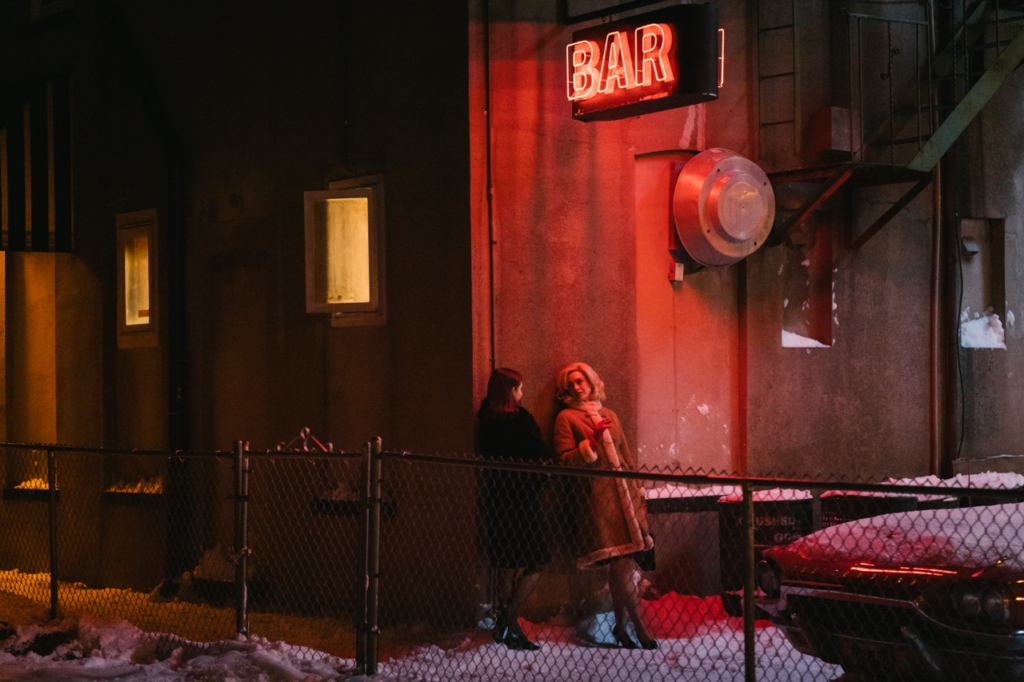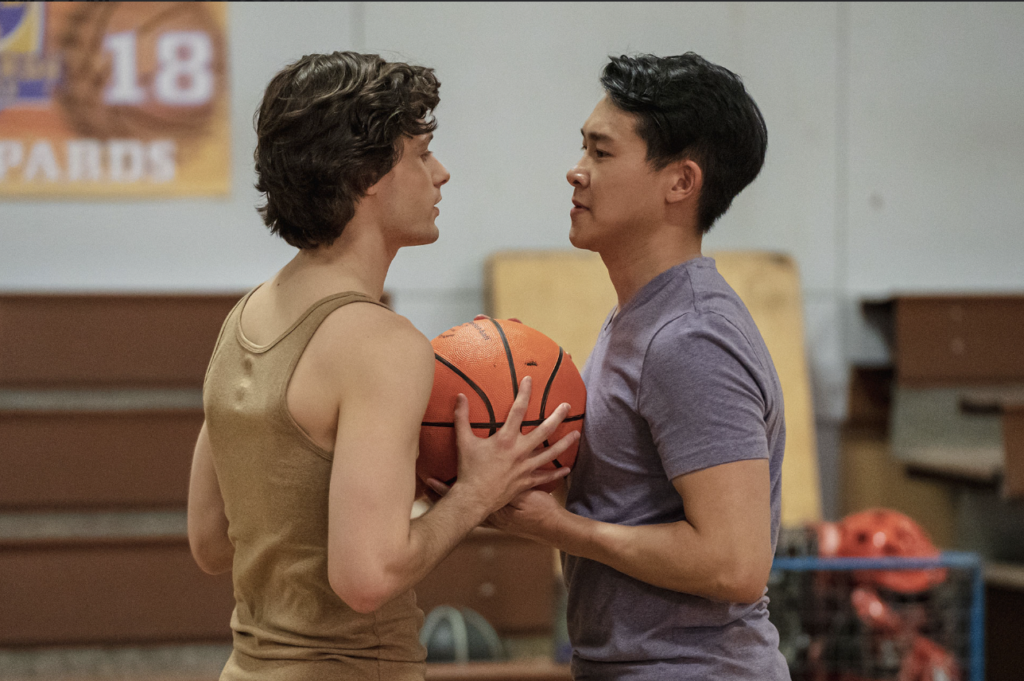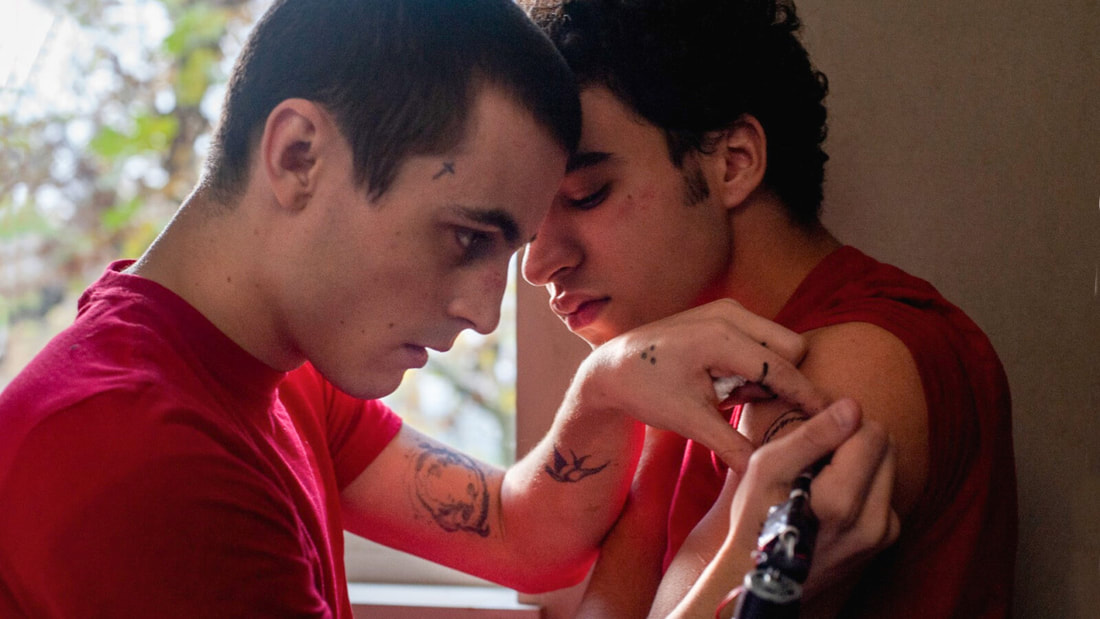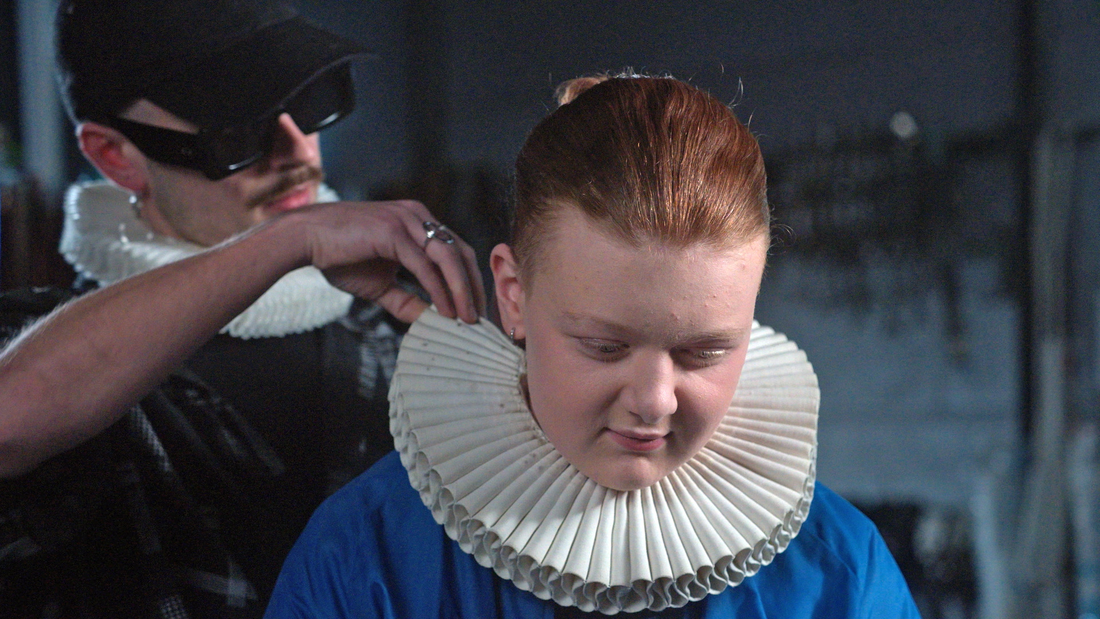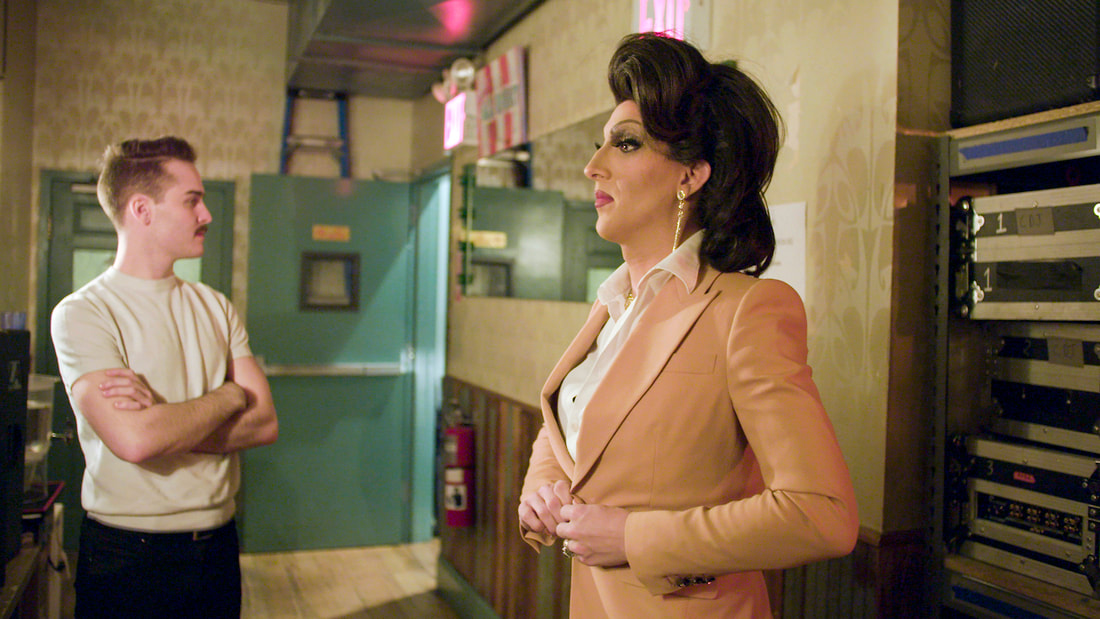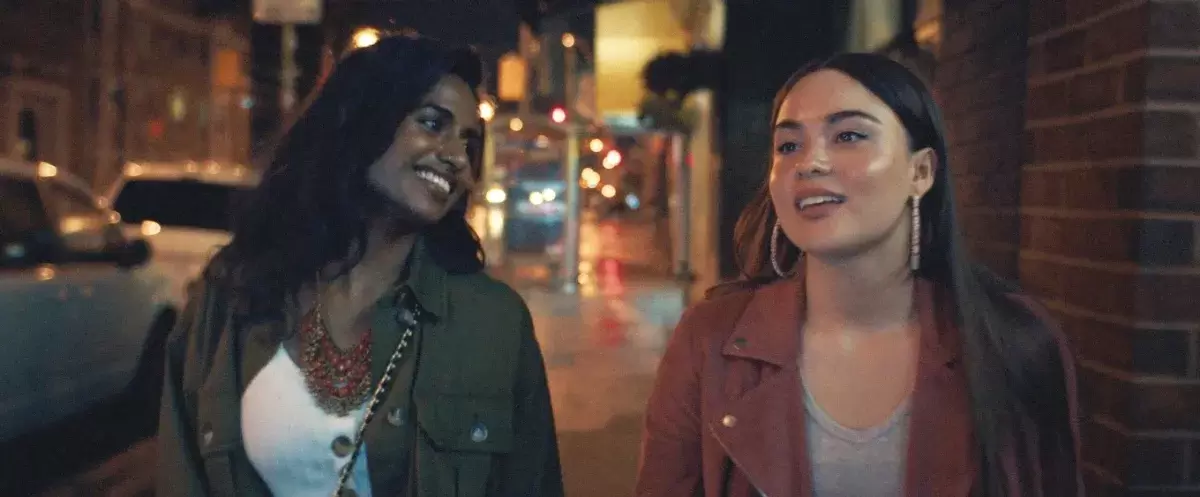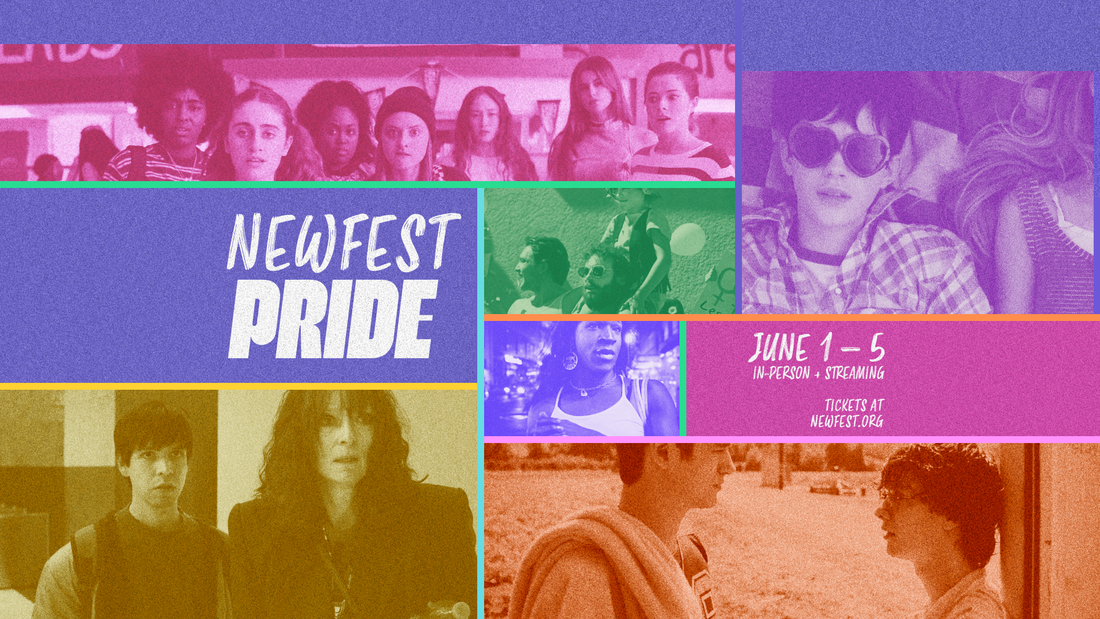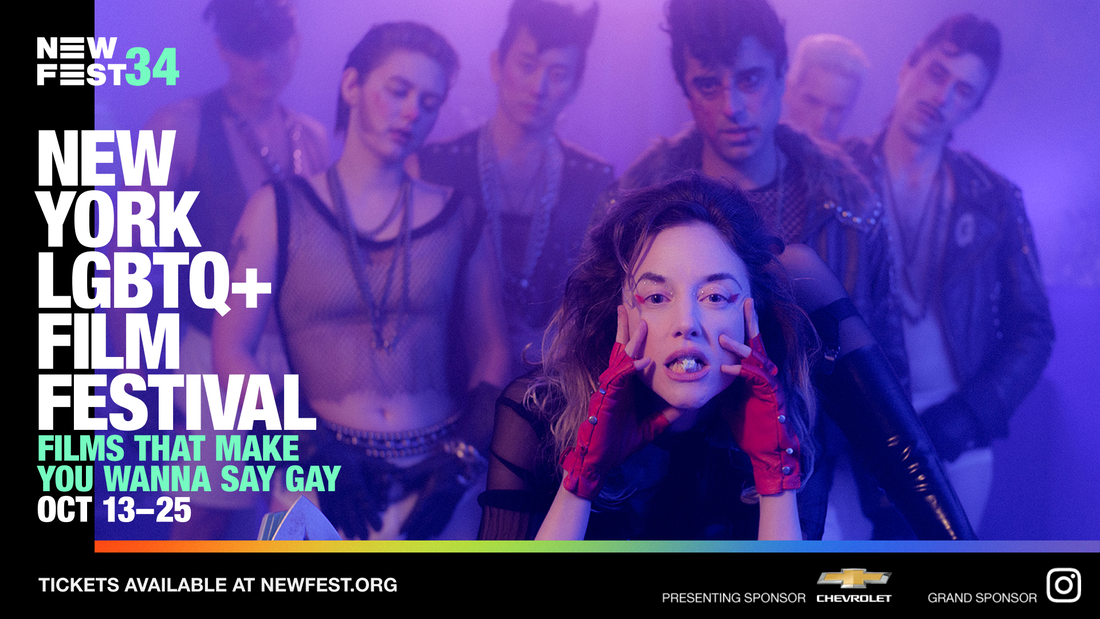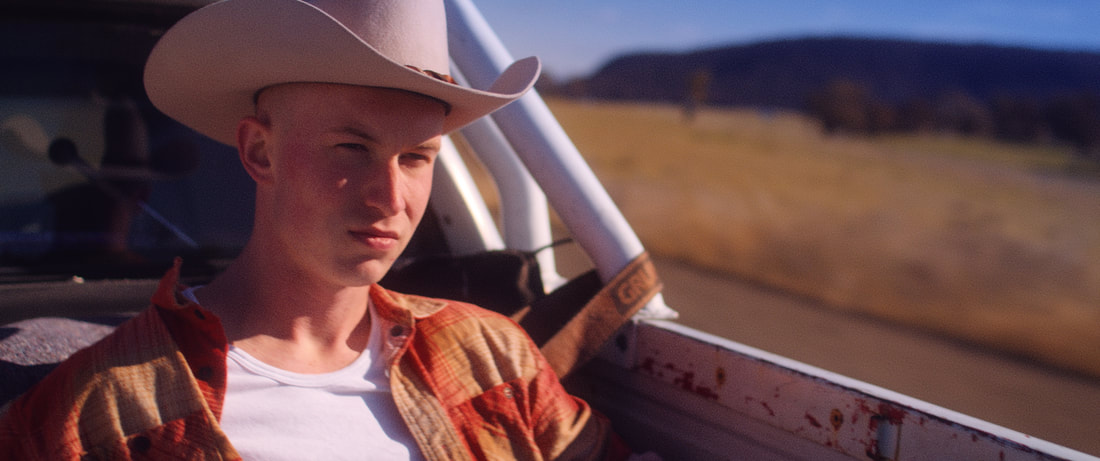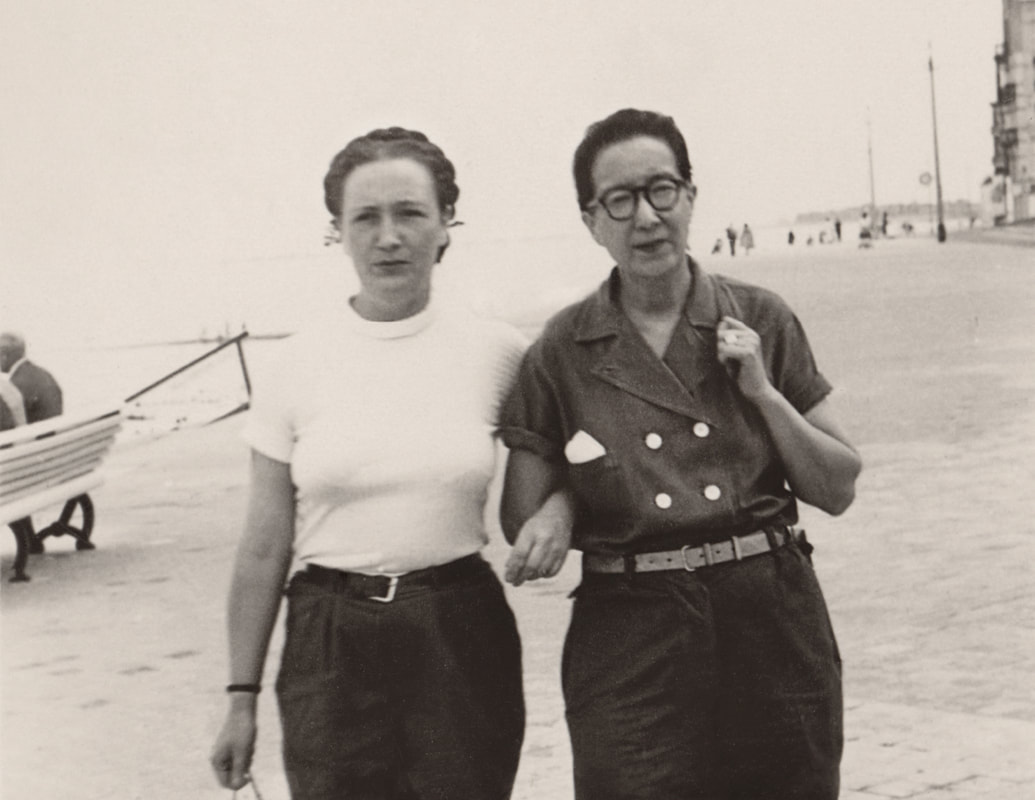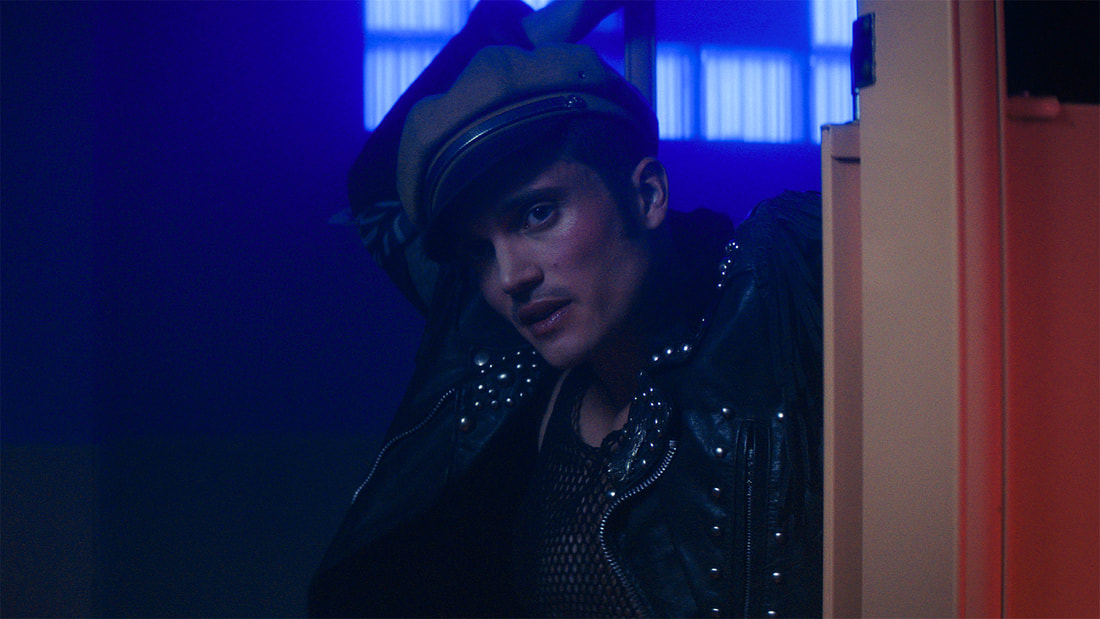|
By Sean Boelman and Tatiana Miranda
NewFest is known as one of the premier LGBTQIA+ film festivals in the United States, and this year's lineup — for its 35th edition — was particularly strong, filled with high-profile awards contenders with queer themes or by queer filmmakers. Equally exciting, though, are the indies and international films by up-and-coming voices in the queer cinema community.
We at disappointment media were glad to have again covered this year's edition of NewFest. Here are some quick thoughts on a few of the films we were able to see as part of this year's festival. All the Fires
Review by Sean Boelman
Mauricio Calderón Rico's All the Fires is a visually stunning film, with the imagery and atmosphere doing a lot of the heavy lifting to keep the viewer enthralled in the story. The film follows a teenage pyromaniac who begins to question his sexuality, and just as it may seem, the film arguably bites off more than it can chew. Although there are some great individual pieces at play here narratively, they never quite cohere into something as riveting as one might hope. It's definitely a slow burn (pun intended), but the gorgeous cinematography — making extensive use of firelight — is enough to make this drama mostly transfixing.
Almamula
Review by Sean Boelman
The Argentine film Almamula (known in English as Carnal Sins) is a horror-esque fantasy that uses its folkloric premise to create a fascinating exploration of the queer identity. Following a teen boy who must come to terms with his sexuality, as he learns of a local legend of a creature that takes the sexually impure, it's clear where the symbolism and metaphors of this film are heading, but Juan Sebastián Torales's script nonetheless uses these images and concepts effectively to explore his characters and themes. As the feature debut of Torales, Almamula shows tons of potential — even if it doesn't always deliver in its own right.
Eileen
Review by Tatiana Miranda
Based on the award-winning book by Ottessa Moshfegh, Eileen is an eerie drama filled with subtle queer undertones and captivating performances. The film stars Thomasin McKenzie in the titular role and Anne Hathaway as Eileen's coworker and potential friend, Rebecca. Set in 1964 Massachusetts, it watches like an imitation of a Hitchcock film. Although some of the more off-putting aspects of the plot and Eileen's character don't penetrate as harshly as they do in the source material, the film still excels in keeping the audience on their toes and questioning the morals of the main characters. Aesthetically delightful, Eileen is sure to find a cult classic status among fans of thrillers and psychosexual dramas.
Golden Delicious
Review by Sean Boelman
There are not enough queer stories featuring people of color protagonists, and for that alone, Jason Karman's Golden Delicious deserves some merit. However, the script by Gorrman Lee is severely lacking, with an inconsistent approach to its themes, which makes it hard to buy into the film despite its heart undeniably being in the right place. The dialogue is nearly insufferable in how out-of-touch it feels, with several lines standing out as things that teenagers would absolutely never say. That being said, if there's one thing clear from watching this, it's that young actor Cardi Wong has a bright future ahead of him — if only he can find a script that allows him to better use his talents.
The Lost Boys
Review by Sean Boelman
Not to be confused with the cult classic 1980s vampire movie, or the characters from Peter Pan, Zeno Graton's The Lost Boys is a conventional, albeit mostly powerful film following a group of teenagers at a youth correctional facility. It's surprising how seamlessly the script by Graton, along with Clara Bourreau and Maarten Loix, balances its various themes — sexual identity, race, and rehabilitation — all under the central thematic umbrella of freedom. However, perhaps the biggest highlight of the film is the lead performance by young actor Khalil Gharbia, who brings an extraordinary amount of empathy to the role.
Orlando, My Political Biography
Review by Sean Boelman
Paul B. Preciado's Orlando, My Political Biography is simply an incredible feat of filmmaking. Combining a loose adaptation of the themes and ideas of Virginia Woolf's eponymous groundbreaking and incendiary novel with a series of personal stories from an all-trans and non-binary ensemble, the film is a beautiful and profound ode to the strength of the LGBTQIA+ community in the face of massive adversity. Preciado's unorthodox style is captivating, resulting in an experience that manages to devastate and inspire in turn. This truly is one of the best documentaries of the year.
Queen of New York
Review by Sean Boelman
Queen of New York should be a fascinating documentary, as it follows the campaign of Marti Cummings — the non-binary drag performer who made history as the first non-binary candidate to run for the New York City Council — and for the most part, it is. However, in the final 30 minutes of the film, it unfairly turns into a hit piece against Cummings's Latino opponent. A lot of accusations are thrown around and not explored in much depth. The result will leave a sour taste in many viewers' mouths. After all, Cummings's campaign was about giving a voice to the voiceless — so why is the film pitting underrepresented voices against one another, rather than suggesting minority communities come together to lift each other up.
This Place
Review by Sean Boelman
V.T. Nayani's This Place tells the story of two young women from different cultures forced to confront their own identities while they grow closer together. What is frustrating about the film is that there is a legitimately great message and compelling story, but it is dragged down by cringe-worthy dialogue and less than impressive performances. Despite leads Devery Jacobs and Priya Guns' great chemistry together, their line delivery is so stilted that it's hard to take them seriously — although as much of the fault here can be blamed on the script as the performances. Still, the film will win viewers over by the end with its charming exploration of intersectionality.
The 2023 edition of NewFest runs October 12-24 in New York City.
0 Comments
NewFest Pride 2023: Celebrating Pride Month With the Most Anticipated Queer Films of the Year5/31/2023 Review by Tatiana Miranda New York's largest LGBTQ+ film presenter, NewFest, is kicking off Pride Month with NewFest Pride, a 5-day event full of film premieres, filmmaker Q&As, and parties. While NewFest's annual festival is in the fall, NewFest Pride is happening in early June, which allows the festival to take advantage of the spring festival circuit and the plethora of films slated to release in the summer.
NewFest Pride opens with Fairyland, a star-studded film about growing up with a gay father in 1970s and '80s San Francisco. Several other films showing take place in the '80s, including the queer coming-of-age love story Aristotle & Dante Discover the Secrets of the Universe. Based on the award-winning YA book of the same name, Aristotle & Dante centers around two Mexican-American teenagers as they learn about each other and themselves in return. Produced by Lin-Manuel Miranda and directed by Aitch Alberto, this film gives an honest voice to queer Hispanics. Problemista is another notable film showing at NewFest Pride from a Hispanic writer-director. Directed by and starring comedian Julio Torres, Problemista tells the story of Alejandro, a Salvadoran immigrant hoping to become a toy designer in New York City. The film also stars Tilda Swinton as an art world outcast and Alejandro's last chance to keep his work visa. Produced by A24, Problemista has recently gained a lot of buzz from its premiere at SXSW. Surreal and intensely comedic, this movie takes Julio Torres' beloved wry humor from shows like Los Espookys to a new level. Emma Seligman and Rachel Sennott's follow-up to Shiva Baby, Bottoms, was another hit at SXSW. Along with Rachel Sennott, the comedy stars The Bear's Ayo Edebiri. The two play teenagers who start a fight club in order to impress their cheerleader crushes. With Sennott and Edebiri's recent roles and work on Comedy Central's Ayo and Rachel Are Single, it's no wonder that this is one of the more anticipated movies of the festival. After the screening of Bottoms, there will also be a Women's Night Out Party, which is a chance for both filmmakers and film lovers to mingle and unpack the film. Meanwhile, other films will be followed by a discussion with their respective filmmakers. Along with the festival's live screenings at SVA Theater, NewFest Pride is hosting virtual showings for attendees to enjoy in the comfort of their own homes. Some virtual showings include 1946: The Mistranslation That Shifted Culture and Before I Change My Mind. That's just the beginning, as there are even more movies showing at NewFest Pride. From much-anticipated indie comedies to documentaries about queer history, this festival has something for everyone and is the perfect way to kick off Pride Month. NewFest Pride runs from June 1-5 in New York City.
By Tatiana Miranda and Sean Boelman
One of the largest LGBTQ+ film festivals in the United States (and the world, for that matter), the 2022 edition of NewFest is back to take New York City by storm. Featuring a lineup of narrative features, documentaries, and short films made by LGBTQ+ filmmakers or featuring LGBTQ+ characters and themes, this is a showcase of some of the best queer films you will see all year.
We at disappointment media covered NewFest this year, both in-person and remotely. Here are some of our brief thoughts on some of the films we were able to see at the fest: Lonesome
Review by Sean Boelman
Craig Boreham’s Lonesome is being sold as a modern gay cowboy movie, and while it is about gay lads in the modern-day south, it shares more in common with Mysterious Skin than it does something like Brokeback Mountain. Boreham’s film has some good visuals, but it doesn’t have the story to back it up. Instead, what we get is a barrage of excessive and explicit sexuality and sexual assault. That isn’t to say that sex in film is a bad thing — but there is little point here other than exploiting gay trauma, and it’s just quite unpleasant to watch.
Nelly & Nadine
Review by Tatiana Miranda
Nelly & Nadine is Swedish director Magnus Gertten's third film centered around WWII. However, it isn't a documentary solely about the war, instead spanning across subjects such as family, love, and the LGBTQ+ identities of the past. More a love story than a war story, Nelly & Nadine depicts the lives of Nelly Mousset-Vos and Nadine Hwang, two women who meet at the Ravensbrück concentration camp in 1944. Told through the lens of Nelly's granddaughter as she unpacks the letters and photographs her grandmother left her, this documentary is heartfelt and eye-opening to the fact that love can persevere even in the worst conditions.
Please Baby Please
Review by Tatiana Miranda
Please Baby Please is a pleasant surprise, as it is marketed as a musical but is hardly that, with only one lone musical outburst hidden between the rest of the film's antics. The movie follows two newlyweds, Suse and Arthur, in 1950s Manhattan as they witness a gang's outburst of violence. This leads to a broader discussion between the two and their friends on the topic of gender roles, kinks, and sexuality. While those topics might seem entirely separate from the main plot, they are cleverly interwoven and portrayed by the cast of characters through fantasy sequences and intense monologues that captivate the audience.
The 2022 edition of NewFest runs October 13-25 virtually and in-person in New York City.
By Tatiana Miranda Before the creation of Studio Ghibli and its groundbreaking animated films such as My Neighbor Totoro, there were the early animated projects from Ghibli co-creators Isao Takahata and Hayao Miyazaki‘s filmmaking careers. In 1974, they worked on the hit animated series Heidi, Girl of the Alps, and then nearly ten years later, they co-created Studio Ghibli, where they would create plenty of well-acclaimed animated features. Well before the height of their careers and after leaving Toei Animation, they worked together to make two animated shorts, Panda! Go, Panda! and Panda! Go, Panda!: Rainy Day Circus. For these shorts, Miyazaki debuted as a writer, and Takahata utilized his new skills in directing. Their collaboration on the Panda! Go, Panda! shorts paved the way for their eventual collaboration when creating Studio Ghibli. Made during the height of the panda craze in Japan during the seventies, Panda! Go Panda! took inspiration from many different popular influences at the time. The plot’s fairy tale themes are similar to that of “Goldilocks and the Three Bears,” particularly in the second short, Panda! Go, Panda!: Rainy Day Circus. The short film opens with circus employees searching the main character Mimiko’s house for their lost tiger. As they search, they grow increasingly anxious to discover who lives in the house as they come across the overly large items meant for the anthropomorphic panda character PapaPanda; this is similar to Goldilocks examining the different sized items in the three bears’ home. Mimiko’s character design, such as her bright orange braids, take influence from Pippi Longstocking, which Takahata and Miyazaki had been working to adapt into an animated series. While some designs are remnants of scrapped projects, others would become an inspiration for later animated films. For example, PapaPanda, the large panda father to baby panda Panny and father figure to Mimiko, has very clear similarities to the design of Totoros from My Neighbor Totoro. Mimiko’s clothing is also very similar to that of Mei and Satsuki from My Neighbor Totoro.
Beyond being an insight into the development of later animated films by Miyazaki and Takahata, Panda! Go, Panda! is also an enjoyable watch in itself. These shorts make the most of their thirty-minute run time, with unique characters and adorable design choices matched with a simple but captivating plot premise. The first installment introduces Mimiko, a young orphan who is fiercely independent, as she creates a makeshift family with anthropomorphic pandas PapaPanda and Panny. These characters have an air of childlike wonder to them as they go on adventures, saving Panny and, in Panda! Go, Panda!: Rainy Day Circus, saving their new circus friends. Compared to later works by Miyazaki and Takahata, the plot of Panda! Go, Panda! is self-explanatory and straightforward, although one could infer something deeper about the forced entrapment of anthropomorphic animals that reoccurs in both shorts. Almost fifty years after its initial release in 1973, Panda! Go, Panda! has the same charm as modern animated shorts. Currently, a digital restoration of both shorts is being shown at select US theaters just in time for a new DVD and Blu-ray release on June 21. |
The Snake HoleRetrospectives, opinion pieces, awards commentary, personal essays, and any other type of article that isn't a traditional review or interview. Archives
June 2024
Categories
All
|
|
|
disappointment media
Dedicated to unique and diverse perspectives on cinema! |

